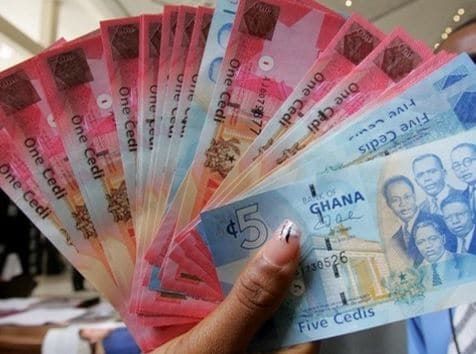
Relief at last for customers of failed banks, but...
The receiver of savings, loans microfinance companies which collapsed last year yesterday initiated the process to pay depositors whose funds were locked up with them.
This follows the announcement by President Nana Addo Dankwa Akufo-Addo in his State of the Nation Address (SONA) last Thursday that the government had released GH¢5 billion to refund money locked up in failed savings, loans and microfinance companies that the Bank of Ghana (BoG) closed down last year.
The announcement, we believe, will bring back life to depositors of the collapsed financial institutions.
The GH¢5 billion is an increase over the GH¢2.4 billion that was previously pledged for the collapsed financial institutions and is in addition to the GH¢13 billion that was mainly issued through bonds to support clients of the first nine failed banks that were liquidated in a clean-up that swept through the industry.
This brings the cost of the overhaul in excess of GH¢20 billion, after the government had contributed GH¢800 million towards the recapitalisation of some of the under-capitalised banks and another GH¢1.5 billion for investors in failed fund management companies.
For us, while the bailouts have helped to stabilise the industry, they have also added to Ghana’s debt profile that the IMF estimated had risen from 59 to 63 per cent of gross domestic product (GDP) at the end of last year.
Nevertheless, the Daily Graphic is happy that the frequent agitation by some customers of the failed financial institutions over locked-up funds will finally die down.
Much as we commend the government for the bold efforts in settling the indebtedness of some failed private institutions, depositors and investors must also be cautious about where they invest or make savings.
For some of the customers who almost lost their savings in the collapsed microfinance companies, they were largely motivated by greed, demonstrated by their desire for unrealistic returns on their savings.
Ghana cannot spend hard-earned money which could have been used for development projects to bail out investments that are motivated by greed and not premised on rational investment considerations.
Much as we applaud the government for responding to the desperate cries of customers of the failed financial institutions, the state must also be careful not to entrench it in the minds of depositors, particularly those of unlicenced financial institutions, that the government will always be there for them when things go bad.
The government and the BoG must constantly engage the citizenry on financial literacy to help create awareness of investment laws.
Indeed, this bailout by the government will help ignite renewed confidence in the banking sector and restore the savings culture.
Going forward, the Daily Graphic thinks that banks would have to properly streamline their business lines if they are to effectively manage the complex web of operational efficiency, liquidity and risk management issues, while staying profitable for their stakeholders.
Having initiated most of the reforms seen in the sector over the last two years, we expect the BoG to take the necessary steps to enhance supervision and compliance across the industry in order to consolidate and sustain the gains made so far.
In addition, it should progressively empower the Ghana Association of Bankers to peer-regulate its members to complement the effort of the Banking Supervision Department of the BoG.
This will ensure that the universal banks self-check their own activities to prevent reckless expenditures that may eventually lead to higher liquidity requirement. This will also help minimise excessive borrowing on the interbank market, which was a major issue in the bank failures.
This way, the country can avoid a repeat of the banking crisis in the proportions that it presented.
